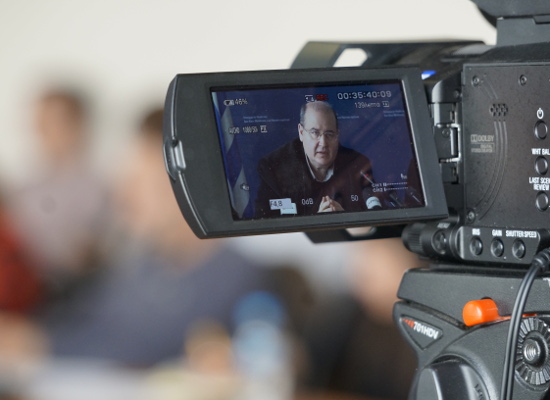14-09-16 Filis to Oraiokastro parents: state decides where refugees will be educated
My statement on the issue yesterday was not tough. It was democratic, and I think it reflects the views of the large majority of the Greek people. I avoided labels and I said such phenomena are incomprehensible and unacceptable. I understand even those who, without saying that they have racist prejudices, cite other issues such as hygiene. I understand them and I want to dialogue with them. I am not among those who charge and condemn ex cathedra.
Journalist: But what happens in practice, minister?
These phenomena are evident in an exceptionally small minority or even marginal segment of Greek society. The vast majority of Greek citizens - all institutions, the government, political parties, the church, and municipalities - have tangibly supported refugees and have exhibited a reservoir of solidarity, love, empathy and support. Consequently, these phenomena cannot besmirch the general sympathy that the Greek people have shown.
Secondly, does a neighbourhood or a school have the right to say we do not want foreigners here? No, they do not! We do not live in ghettoes in our country. We do not entrench villages, schools and cities and evict those who are undesirable for us because they are different. In our country we have the free movement of citizens and a state that sets the terms - based on international laws and treaties to which Greece is a signatory, and on the domestic legal order – of the residence, care and reception of refugees.
Journalist: So these children will go to school normally and you will set aside these reactions? This has opened a debate.
It is not a matter for local societies or local school boards to judge whether the refugee children will attend classes at these schools in the afternoon.
Journalist: Will they attend then?
That has been decided by the state and I invite the Mayor [of Oraiokastro], despite his contradictory statements, and other local officials, not to fan the flames and to act based on democratic legality. I am trying to speak with them but the school board president resigned and I want to see who represents them. I assure them that the state and competent health authorities have taken all preventive measures and vaccination of children so as to stem fears.
Journalist: They have taken measures or they will take measures?
They have taken and are taking measures. Health measures are not a one-off affair, but continuous. We are vaccinating and health authorities are responsible for that.
Journalist: Will these children will be separate from the programme for Greek children, so as to be gradually integrated?
These children will go to school in the afternoon to attend reception classes to learn Greek, to learn their native language better, and to learn a foreign language, because most families want to leave Greece. We are helping them gain what they need to do that.
Journalist: Is there a comprehensive integration programme? There are very many children in different situations. Some are in reception venues, others are in homes living normally. Is there a comprehensive school integration plan?
Obviously, Mr. Lyritzis, you are right, we have many tracks in this process, many facilities. Most of the refugees’ children are at reception centres, and hence the Greek state is obliged based on international treaties and the constitution to satisfy the basic rights of these children, such as education. It is not only a duty, but if we abandon these children we will face worse situations. We must find a way gradually for them to communicate with Greek children and socialise, and not have ghetto-type divisions in society.
Journalist: So should there not be schools in the reception centres?
There will be only as an exception, because we don’t want a children’s ghetto there. There will be a pre-school because small children are close to the mother, and it is difficult to move them. Secondly, lessons will be held in reception centres located far from communities and cities. When there are schools fairly close by, we have agreed with the International Organisation for Migration that they will offer 9 million euros for student transport costs.
All political parties and institutions must take a stand and not tolerate such [exclusionary] minority reactions.

